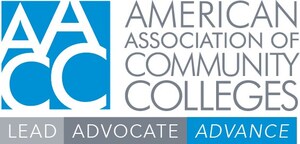
Community Colleges are Committed to Access, Success for All Students
AACC responds to the Institute for College Access and Success Report
WASHINGTON, July 15, 2014 /PRNewswire-USNewswire/ -- The American Association of Community Colleges (AACC), on behalf of more than 1,100 community colleges, commends the recent report by the Institute for College Access and Success (TICAS) examining community college participation in federal student loan programs. Many of the recommendations for federal action align with AACC's Higher Education Act (HEA) reauthorization recommendations.
Unfortunately, the report does not adequately capture the ways in which the current statutory and regulatory landscape impacts institutional behavior regarding federal student loans.
The report underplays the impact that the threat of a loss of Pell Grant eligibility for all of their current students, based on the loan repayments of a small fraction of their former students, understandably has on community college decisions to participate in the federal loan program. Some community colleges are faced with a loss of eligibility later this year. More will likely face the same predicament in coming years. Until federal policy is changed to decouple student loan program and Pell Grant eligibility, some colleges will eschew participation in loan programs because the risk of losing Pell Grant eligibility is just too great.
The report criticizes community colleges for opting out of federal loans due to their perceived "inability to keep students from borrowing unnecessarily or to influence whether those borrowers repay their loans" asserting that "it is simply not the case that there is nothing colleges can do to help students borrow wisely and repay their loans on time." While the report highlights some promising practices currently employed by community colleges, it overstates the extent to which case-by-case review of student loan applicants is a viable tool for combating over-borrowing within the current legal and regulatory framework. This reality of inappropriate borrowing at institutions that are long committed to minimizing it is another reason why some institutions refrain from participation in the loan programs—irrespective of the default rate issue.
AACC also notes that the report does not provide analysis of the extent to which the institutional decision not to participate in loan programs influences student outcomes or precludes access to prospective students.
The inability of campuses to set differential loan maximums based on the student's program and/or academic preparation is another serious shortcoming in federal policy. AACC is hopeful that such authority will be provided in the next reauthorization of the Higher Education Act (HEA). This policy has broad support in the higher education community and a variant is included in the "FAST" Act advanced by Senators Lamar Alexander (D-TN) and Michael Bennet (D-CO).
The overwhelming majority of community colleges will continue to participate in federal loan programs, and their students will continue to benefit from them. Institutions that choose not to participate in these programs will also endeavor to find ways to provide access and success for their students.
As the voice of the nation's community colleges, the American Association of Community Colleges (AACC) delivers educational and economic opportunity for 13 million diverse students in search of the American Dream. Uniquely dedicated to access and success for all students, AACC's nearly 1,200 member colleges provide an on-ramp to degree attainment, skilled careers and family-supporting wages. Located in Washington, D.C., AACC advocates for these not-for-profit, public-serving institutions to ensure they have the resources and support they need to deliver on the mission of increasing economic mobility for all.
SOURCE American Association of Community Colleges





Share this article